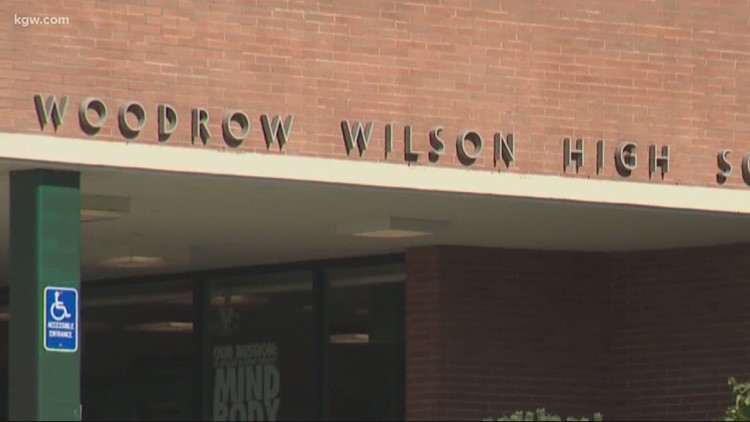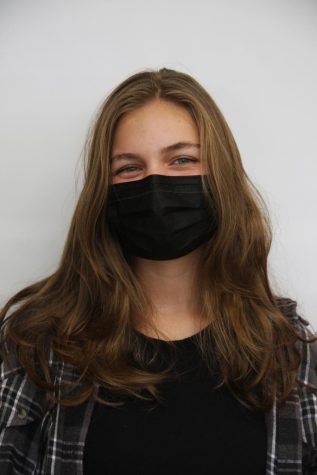Renaming the School Is More Important Than You Think
March 7, 2021
On July 14th, 2020, the Portland Public Schools’ Board announced it was going to begin the name changing process for our school in September.
A petition that received more than 1,000 signatures, brought the harmful and racist ideals of Woodrow Wilson front and center for Portland Public Schools. Wilson’s segregationist attitudes and support for white supremacy groups sparked the school board’s decision to consider the idea of a name change.
“It’s just an opportunity to really shift the narrative from the white, straight man who screened a film of the KKK in the White House, to someone who served their communities and believed in hope and peace and unity.” says Aslan Newson, a Queer Afro-Indigenous activist, and member of the school’s Renaming Committee, finishing her Junior year at Wilson this year.
The Renaming Committee presents itself as a council composed of student and adult representatives that “strives to create a non biased, transparent, and ethical process to choose a new school name” (via their Instagram @wbhsrenaming).
On January 13th, the committee announced via their Instagram that the school would be named after Ida B. Wells, a prominent Black investigative journalist for the Memphis Free Speech and Headlight newspaper, who wrote about racial segregation and inequality in the late 1800s.
But the name change isn’t just about changing a name. It’s about changing the school’s priorities, says Newson. “[Changing Wilson’s name is] telling students — specifically students of color — that we prioritize you over this dead, white, straight, racist guy.”
By changing the name, Newson says the school is “challenging that white narrative, that Eurocentric ideology that white people are superior, so let’s name everything after white people, white men. White, straight men, specifically.”
Eurocentrism is a view that focuses on the European values, beliefs, and ideals, while excluding a wider view of the world, implicitly seeing European culture, and subsequently white culture, as superior. This specifically excludes the cultures and ideals held by other countries, and people of color, while furthering the white narrative in our institutions.
Newson has been challenging that white narrative at Ida B. Wells since freshman year, as a prominent member of the Black Student Union, A.W.A.R.E., and the No Place for Hate program at our school.
As one of the leaders of BSU, Newson stresses the importance of affinity clubs during and after the renaming.
“At BSU we try to foster a culture that encourages black students to feel safe, and communicate, and be honest and transparent and build relationships. So, moving forward with the name change, I think those spaces are only going to be more important or more essential for students of color, because they’re going to need a space to go.”
As well as being able to have conversations between people of color, Newson thinks conversations surrounding the name change should be happening predominantly amongst white students, “because I don’t want the students of color to feel like we have to educate the white students. I want the white teachers to specifically address the white students and be like, ‘Hey, what are you doing, how can you be an ally, how can you be actively anti-racist, let’s figure out how to do that together’, because white people need to figure that out.”
Newson continues to emphasize the idea that white teachers must take on the responsibility to educate white students and facilitate conversations about race and how to be anti-racist in the classroom day-to-day. She also thinks that as the name of the school is changed, students should be educated about the name change itself as well.
“We want there to be an education piece with, why did we change to this person, why is this person more fit to be commemorated as the name of our school?”
Newson hopes the name change will bring a new wave of reawakening to our school. “We’re just in a time where we need to be changing and switching everything up, especially the education system, because that’s where so many inequities are fostered and perpetuated.”
With 74% of our student body being white, the inequities Newson mentioned are prevalent, and the renaming itself was no exception. The PPS school district communicated its intentions for Wilson to be the first high school to go through the process in order to be a model school for others in the school district.
Newson considered this “a huge red flag”, saying, “I didn’t think it was fair for us to have that privilege of changing our name first, before schools like Jefferson, that have a more diverse student body [and] have been asking for a name change.”
Overall, Newson says she’s hopeful for the name change and is reminded why she became a part of the process in the first place
“That’s why I joined the name change committee – because it felt like we were taking a step in the right direction. I do believe we’re taking a step in the right direction.”
This interview was done in the early stages of the renaming process, before the new name was announced.



